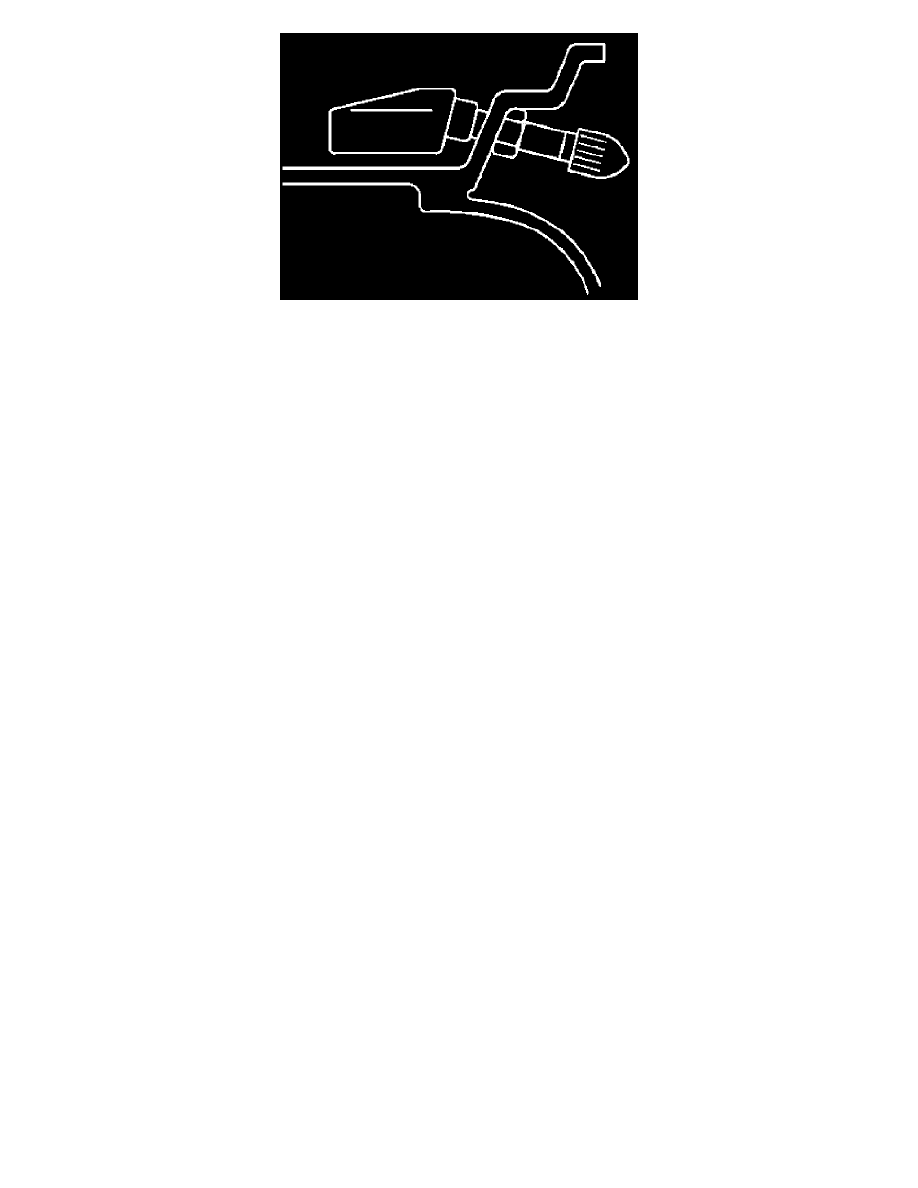XL-7 4WD V6-2.7L (2003)

1. Clean any dirt or debris from the grommet sealing area.
2. Insert the sensor in the wheel hole with the air passage facing away from the wheel.
CAUTION: Refer to [Fastener Notice].
3. Install the sensor nut and position the sensor body parallel to the inside wheel surface while torquing.
Tightening torque
Tighten the sensor nut to 7 N.m (62 lb in).
NOTE: Before reinstalling the tire on the wheel, note the following items to avoid tire pressure sensor damage upon tire mounting:
-
Position the mounting/dismounting head 180 degrees from the valve stem.
-
Position the bead transition area 45 degrees counterclockwise of the valve stem.
-
Using the tire machine, rotate the tire/wheel assembly clockwise when transferring the tire bead to the inside of the wheel rim.
-
Repeat items for outer bead.
4. Install the tire on the wheel. Refer to [Tire Mounting and Dismounting].
NOTE: A service replacement tire pressure sensor is shipped in OFF mode. In this mode the sensor's unique identification code cannot be learned
into the liftgate module (LGM) memory. The sensor must be taken out of OFF mode by spinning the tire/wheel assembly above 32 km/h (20
mph) in order to close the sensor's internal roll switch for at least 10 seconds.
5. Install the tire/wheel assembly on the vehicle. Refer to [Tire and Wheel Removal and Installation].
6. Lower the vehicle.
7. Learn the tire pressure sensors. Refer to [Tire Pressure Sensor Learn].
Tire Pressure Sensor Grommet Replacement
Tire Pressure Sensor Grommet Replacement
Removal Procedure
1. Raise the vehicle on a suitable support. Refer to [Lifting and Jacking the Vehicle].
2. Remove the tire/wheel assembly from the vehicle. Refer to [Tire and Wheel Removal and Installation].
NOTE: Before the tire is removed from the wheel, note the following items to avoid tire pressure sensor damage upon tire dismounting:
-
Place the sensor's cap and valve on a dry clean surface after removal. The cap is aluminum and the valve is nickel plated to prevent corrosion
and are not to be substituted with a cap or valve made of any other material.
-
Position the bead breaking fixture 90 degrees from the valve stem when separating the tire bead from the wheel.
-
Position the mounting/dismounting head so the tire iron, or pry bar can be inserted slightly clockwise of the sensor body when prying the tire
bead up and over the mounting/dismounting head.
-
Using the tire machine, rotate the tire/wheel assembly clockwise when transferring the tire bead to the outside of the wheel rim.
-
Repeat items for inner bead.
